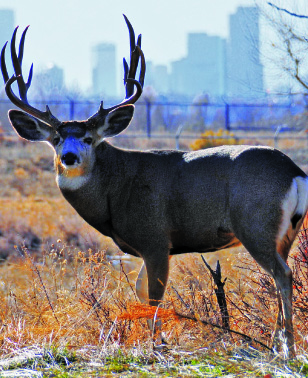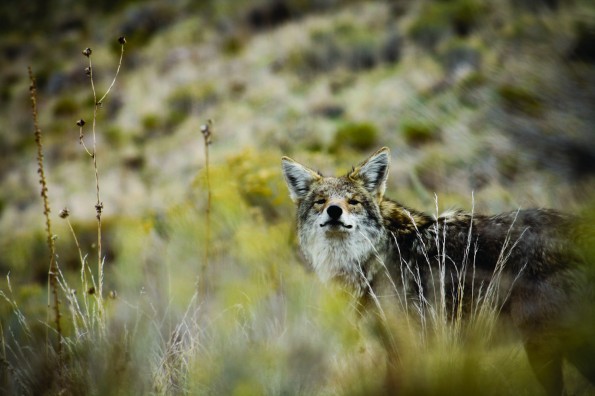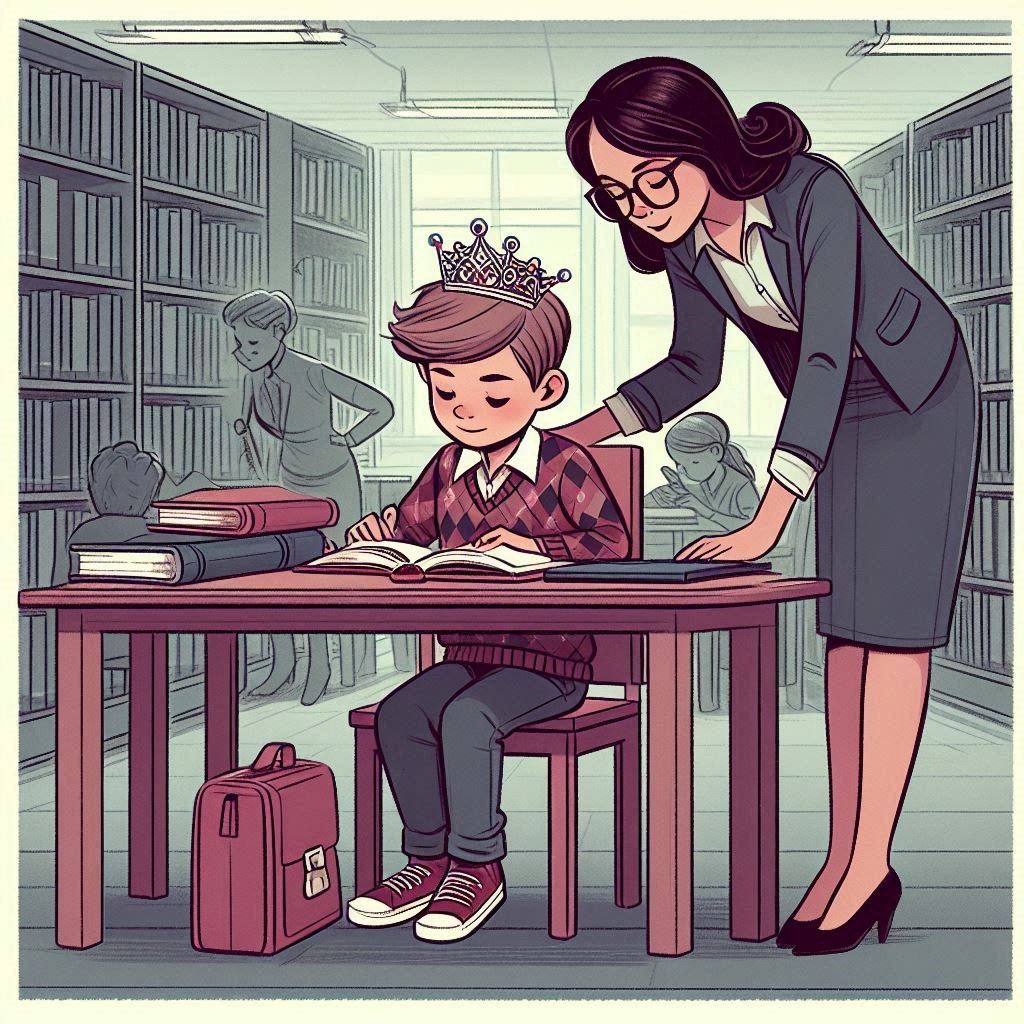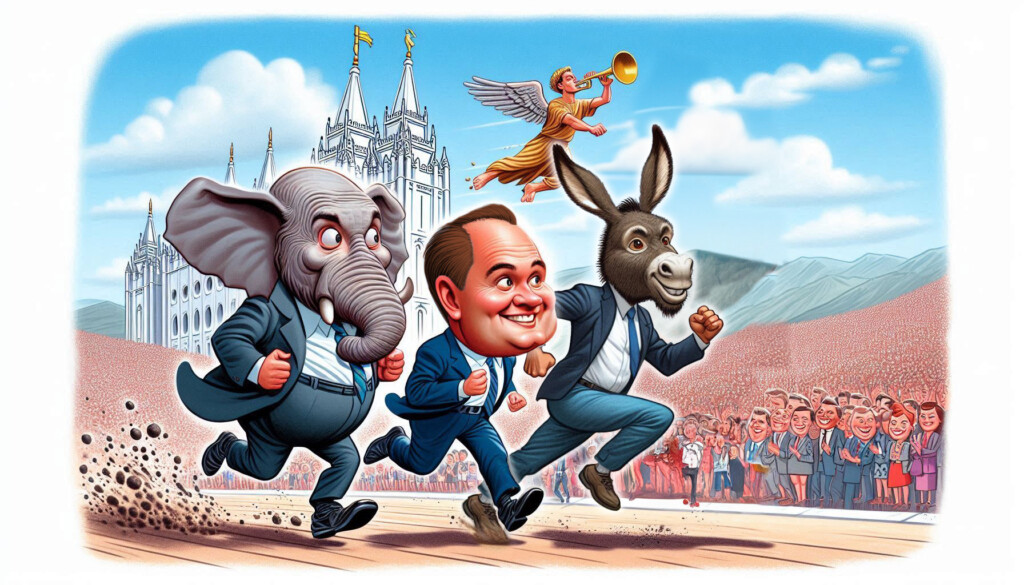 During the 2012 election, Republican Vice Presidential candidate Sarah Palin drew fire for supporting aerial wolf hunting. Palin claimed this type of hunting was needed to control wolves in a state that “depends on wildlife for food and cultural practices which can’t be sustained when predators are allowed to decimate moose and caribou populations.”
During the 2012 election, Republican Vice Presidential candidate Sarah Palin drew fire for supporting aerial wolf hunting. Palin claimed this type of hunting was needed to control wolves in a state that “depends on wildlife for food and cultural practices which can’t be sustained when predators are allowed to decimate moose and caribou populations.”
Today, she might not draw the same criticism. The wildlife population has continued to grow exponentially and several red and blue states are loosening their hunting restrictions to help curb their wildlife numbers. Wild hogs and deer are in greater numbers today than when the Pilgrims first stepped down from the Mayflower. These animals spread Lyme and other tick-borne disease, eat crops, and cause a number of highway accidents. Even wild animals such as pumas and pythons are now finding their photos snapped in urban areas.
While no mainland states have resorted to aerial sniping, Utah and several of its neighbors have turned to other methods for wildlife control. Wyoming, Montana and Idaho reintroduced wolves into their ecosystems to fight their growing prey populations. Urban bow and arrow hunting is also being explored. Alpine City in Utah has joined cities in North Carolina, New Jersey, Mississippi and California that have lifted hunting urban restrictions to combat issues caused by wildlife. Alpine has initiated a two-year pilot program licensing archers to hunt deer. Archers can keep the deer or the city will pay $40 to have it processed and donated to a food bank. The 2014 season will run from August 1 to October 31.
Wildlife hunting is big game in Utah. The hunting industry attracts hundreds of millions of dollars to the state. In 2011, more than half a billion dollars came from hunters, creating almost 13,000 jobs for the state. Taxes and surcharges on hunting expenditures is funneled into habitat restoration projects. According to Bill Bates, Wildlife Section Chief in Salt Lake City, for the Utah Division of Wildlife Resources, “Hunting licenses and permit sales generate about $17 to $20 million in revenue in Utah annually. These dollars are matched against federal Pittman-Robertson funds, generated from the sales.”
In 2012, two bills were passed that benefited the Predator Control Program. The first, Predator Control Funding, added a $5 fee to each hunting license and The Mule Deer Protection Act, took an additional $750,000 to control the coyote population. As of this year, the program rewards $50 for each properly-killed coyote killed in Utah.
Contrary to popular belief, game hunting serves to increase and control wildlife population. “Protection and improvement of habitat is necessary to negate the impacts of the loss of habitat through invasive species and development. Law enforcement is necessary to make sure that hunters follow the rules so that viable populations exist.”

One hunter, Peter Wankier, 25, agrees. “Conservation is probably the key value of hunting for me. The license fees and taxes that we pay are most of the state’s budget for wildlife conservation efforts. If there were no hunters, there would be a larger tax burden placed on the general public. No licenses means no fish hatchery, no Farmington Bay waterfowl habitat, so on and so forth.”
Utah also boasts the largest wildlife restoration project in the country with over one million acres being managed.
The value of hunting has always been well-known in its community, and not just for its economic benefits. “A big benefit for me is just being healthier; wild game is incredibly healthy,” says 60-year-old sportsman Stephen Whitley. “Look it up. It has higher protein and fewer calories and bad fats. Plus if you are really going to try at all, you have to take some time beforehand and get into shape. I also get to spend time with my friends and family doing it.”
Utah’s diverse landscape is a hunter’s paradise and is only expected to grow. Hunters come from all across the country to hunt here. More than a fifth of all hunting licenses issued in Utah are to out-of-staters. Perhaps it’s because of Utah’s unique hunting laws.
“We offer a combination of allowing over-the-counter permits to hunt spike elk (yearling bulls),” says wildlife official Bates. “In order to hunt mature bulls on these mapped units, you must draw a limited entry permit. Hunters that draw these permits average over 90% success. This program has produced some of the largest bull elk harvests in the western United States over the past decade.”
Hunting also helps fight disease. “Our bison management system is unlike any other,” says Bates. “We manage bison on the Henry Mountains and Book Cliffs as wildlife and manage them through sport harvest. As a result, we have two of only four disease-free, free-ranging bison herds in the world.”
With the virtues of hunting comes the necessity of killing animals. But most hunters understand the responsibility of being a sportsman and don’t simply kill for sport. “Heritage and tradition also play a roll,” says Wankier. “I can’t help but feel nostalgic hunting the same mountain range my great grandfather did. Respect for the animal I killed is also very important to me. I always eat what I kill.”
For further information, please visit:
Hunting and Conservation go hand in hand?
http://content.time.com/time/covers/0,16641,20131209,00.html
http://www.conservationforce.org/role.html
What are your thoughts on or experience with hunting? Please comment below. Also, don’t forget to share this information with your friend on Facebook.




